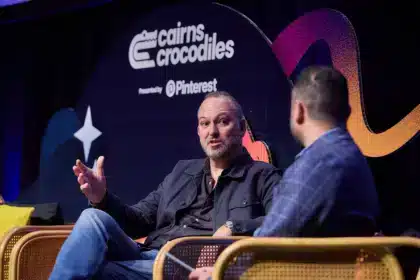Brands engaging with social media is mostly a waste of time for marketers, argued Mark Ritson, associate professor of marketing and branding expert at Melbourne Business School. Social media agency SOCiETY’s managing director Nicola Swankie had something to say about that.
My team and I at SOCiETY very much enjoyed watching and discussing the talk by Professor Ritson this week. But since he was so passionately blunt with his thoughts about our craft as social media marketing practitioners, we felt the need to pull together a short response to some of his points.
Are we overhyped?
First of all, has Social Media had a lot of trade press coverage? Well yes, yes it has. We won’t argue there, but what we will say is this; Is there anything else as revolutionary to people’s media consumption behavior since the beginning of advertising as we know it? Hell no. And that’s why even a good six years or more into this revolution it still gets talked about so much.
Why is that? What’s so amazing about Social is not how many fans you can acquire on a brand page. It’s the fact this connective, on-demand technology has given people the power to challenge and change marketing forever and that is a trend worth talking about.
That new power that people have is vital to consider for any marketer, because it’s shifted marketing forever — it’s given us the control to personalize and choose the media we see and it’s given us a voice.
IT’S NOT A FIGHT WITH TV
We don’t have to passively watch and listen to the same old big media channels now. But actually, we still can and we do, and we can even do it at the same time we are on Facebook. It’s not a TV versus Facebook argument. If Professor Ritson had ever been in a Facebook presentation he would know TV to Facebook comparison stats is not something Facebook are shy about presenting, but in actual fact, something else both Facebook and twitter support, social and TV together.
IS IT A WASTE OF TIME?
Does it work? Is it an effective marketing tool? Well, the way to answer that question is certainly not to measure the number of people who actively say they want to connect with brands on Social. Let’s be honest, how many people watch TV to see the ads?
Nor is it by pointing out comparing how many times your Facebook fans have engaged in the last week versus the entire Australian population apparently, if you are Woolworths. That number is simply not a relevant here and anyone who vaguely understands how to measure the effectiveness of social marketing knows that.
Social, like many other channels is pay-to-play now yes, but the benefit it has over others is the quality of its audience, targeting, reach and cost effectiveness and the fact you can still have an engaged two-way conversation. That has not changed just because Facebook has matured as a platform.
They key to success is what you consider Social’s role to be within your marketing plan. Herein may lie its true value (or not as Ritson points out).
But please don’t judge us in the same way you judge DR (direct response). That’s when I get really pissed off.
No Social doesn’t convert as well as DR channels. Nor would I expect it to, because when I am searching for a product that means I must have some potential interest in buying it. On social I’m in browse and discovery mode with my personally curated world.
Ritson talks about lazy journalism, but he does not talk about lazy marketing and that is a key point here. Great marketing should engage – it shouldn’t be something people want to ignore. But Social, is the most honest of any media and so its where lazy, unengaging marketing suffers the most. That is not a reason to ignore Social, it should be a challenge to us all to think about how to make our marketing more compelling and relevant.
I’m very passionate about brands finding a way to be appreciated and liked by people more. And for me, this is Social’s primary role first and foremost, long before DR metrics. Any other benefit is a nice-to-have. But that’s not to say Social can’t do that too. Used and measured in the right way you can prove ROI – this something we did for Coles last year.
CAN BRANDS PLAY IN SOCIAL?
To say that brands will only ever be a third wheel on Social is completely defeatist in my mind. Ritson is absolutely right. We do use Social to talk to each other primarily, but what do we talk about? Other people, our passions, culture, news and we talk about brands. Because brands are an intrinsic part of our culture. They can actually add a lot of colour and entertainment to our lives and they stand for much more than a product. Why else would we happily badge ourselves with Lululemon or Beats by Dre? We like and talk about brands in real life and Social Media is no different to that. Because, maybe a radical idea, Social Media is really just a bunch of people talking about stuff we like. The fact we are online really makes no difference
What came as a bit of a surprise to us was when we were discussing this piece with my team, one of them mentioned that she found it interesting that she saw on LinkedIn that Professor’s Ritson’s thesis was actually a study of the social uses of advertising. I was curious to read more.
I found it fascinating that despite the fact that Professor Ritson himself argues in his presentation that Social is for people and brands have no place there, his thesis actually makes a very good point that advertising can be highly social:
“…the researcher was able to observe a range of advertising- derived social interactions that occurred on a daily basis. These interactions varied from the simple mimicking of a jingle or catchphrase for a few brief seconds to extended conversations about a particular advertising execution. Advertising executions along with the other forms of popular culture, such as music, film, and television programs, were used as a central conversational resource.”
Interesting… So makes the point himself that brands as part of culture, but in an era where so much of the culture and content we connect over and share is on Social Media, where we see movements like #illridewithyou and #putoutyourbats he feels brands have no right to be there?
So you want to forget about using Social? Fine, go ahead, use those out-of-context numbers and statistics to defend yourself. I am sure you’ll win the debate easily. But will you believe it yourself? Can you honestly convince yourself Social has no relevance in marketing when you spend so much time on Social yourself? Things are changing, if you want to choose to ignore that Professor Ritson that is your choice.
And actually what’s shifting is bigger than Social Media, its marketing and communications overall. I may be biased, but I believe the practitioners with the guts to work out how to connect and engage in the most honest of any media channel suggests to me we are the ones that will crack how this whole industry needs to re-invent before anyone else.
“The most important conclusion to be drawn from this study is the acceptance that advertising can form the basis for a wide variety of social interactions.”
I completely agree Professor Ritson, in fact I believe no brand should have to feel like a third wheel, they always have had a role to play in conversation and culture and approached in the right way, they can absolutely be a part of the conversation in Social Media too.








